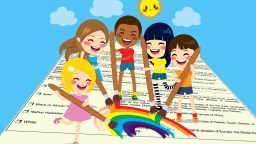Slavoj Žižek: Why ‘Political Correctness’ Gets In Its Own Way

Don’t get Slavoj Žižek wrong. The famous philosopher, featured on Big Think last week in an interview about political correctness, doesn’t find fault in being polite or respecting people who are different. He does not advocate for hate. He agrees a state of political correctness is better than open racism or discrimination.
That said, Žižek decries political correctness for two main reasons. First, that it’s entirely and transparently fake, an artificial cover enforced by totalitarian social pressures. Second, that political correctness manifests itself as a form of behavior control rather than a collective effort to remedy the problems it ostensibly seeks to address. Racial and social harmony cannot sprout from this sort of situation. In fact, Žižek argues that political correctness gets in the way of mutual understanding.
You can watch the interview below:
Žižek has a loyal following in many circles and thus the video has sparked some vibrant conversations, most notably over at Reddit. There are some keen observations there. Žižek’s thoughts are based in Lacanian theory, the idea being that social rules are being enforced by an imagined “Big Other” whom we strive not to offend. Reddit user gulliblegambler hits at this point rather well:
“So Zizek is saying the whole trick to controlling a society is making everyone agree to pretend we don’t see each other for what we really are and to make everyone agree there are big personal costs associated with breaking this rule.”
The problem is that, for the most part, the actors who support and enforce political correctness do not understand the damage it causes. Here’s Žižek from the video:
“Ambiguity — that’s my problem with political correctness. No it’s just a form of self-discipline which doesn’t really allow you to overcome racism. It’s just oppressed controlled racism.”
When the Civil War broke out in Yugoslavia and ethnic tensions gave way to conflict, Žižek explains the first things to go were the dirty jokes and “shared obscenity” he had enjoyed with so many of his disparate friends growing up. People define others by what makes them different. Political correctness enforces this notion with a chilled air of politeness. Žižek would prefer a society in which social pressures encouraged folks to seek out common ground, even if the methods were somewhat obscene:
“I remember when I was young when I met with other people from ex-Yugoslavia republics — Serbs, Croat, Bosnians, and so on. We were all the time telling dirty jokes about each other. But not so much against the other. We were in a wonderful way competing who will be able to tell a nastier joke about ourselves. These were obscene, racist jokes, but their effect was a wonderful sense of shared obscene solidarity. … Of course racist jokes and so on can be extremely oppressive, humiliating, and so on. But the solution I think is to create an atmosphere or to practice these jokes in such a way that they really function as that little bit of obscene contact which establishes true proximity between us.”
Ultimately, political correctness is a system of control that fails to understand the underlying causes of the problem it wants to address. A cynic would argue that this is the point — that certain societal actors prefer citizens who restrict themselves from exploring race. Žižek may not be that cynical, but he certainly sees the system for what it is: totalitarianism. Rather than an authority commanding “do this or else,” the ringing refrain of political correctness is forced behavior tinged with notes of “I know better than you what you really want.”
That’s horrifying to Žižek and certainly disappointing to anyone who wishes for social harmony and realizes it’s not possible under these current conditions.





